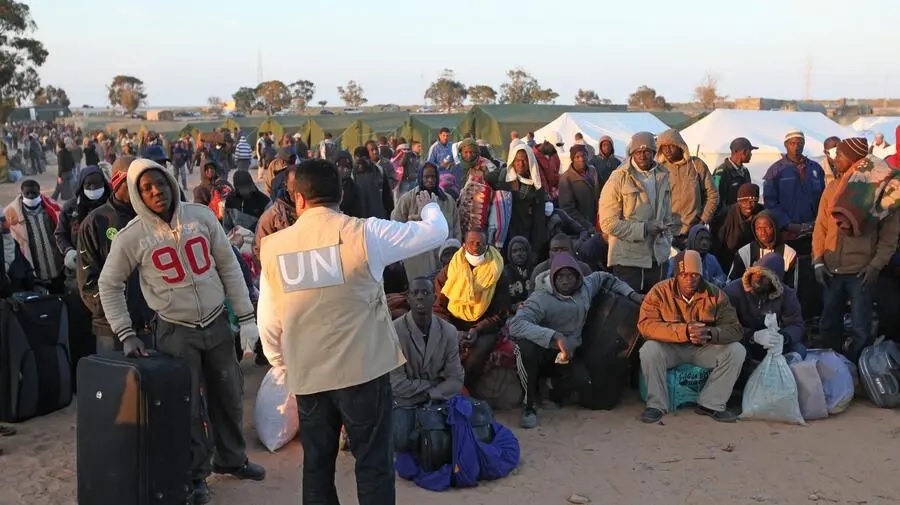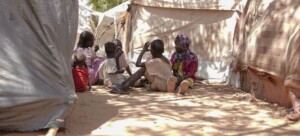Sudanese refugees in Tunisia face violent crackdown by security forces

A UN official talks to a group of migrant workers after they crossed from Libya to Tunisia, 2011 (File photo: A.Duclos / UNHCR)
SFAX –
Sudanese refugees in the Tunisian port city of Sfax were subjected to a brutal crackdown by security forces last week, with reports of violent beatings and mass expulsions, predominantly targeting migrants from sub-Saharan Africa. The crackdown is believed to be the early implementation of a recent agreement between Tunisia and the European Union, which aims to curb migration flows and boost the Tunisian economy.
Sudanese refugees residing in the port city of Sfax, Tunisia experienced a violent crackdown at the hands of Tunisian security forces. Human Rights Watch (HRW) tweeted that between July 2 and July 6, Tunisian police in Sfax beat and forcibly expelled hundreds of migrants, primarily from sub-Saharan Africa.
According to HRW, Tunisian security forces conducted mass expulsions of hundreds of Sub-Saharan African migrants and asylum seekers to the Tunisia-Libya border. Videos, photos, and testimonies substantiate the claims of abuse suffered by the migrants at the hands of Tunisian security forces.
Multiple testimonies on Twitter said that the police subjected migrants to physical assault and forcefully expelled them from the city.
Sudanese refugees, who are holders of United Nations High Commissioner For Refugees (UNHCR) asylum-seeker cards and unable to return to their war-ridden home country, find themselves in an undignified state in Sfax. Witnesses have tweeted about seeing Sudanese refugees camped in public parks under inhumane conditions, lacking access to food, water, and proper sleeping arrangements.
The suffering of Sudanese refugees in Sfax was brought to the public’s attention through pleas posted on social media in English and Arabic.
‘Border externalisation policies’
Monica Marks, a professor of Middle East Politics at NYU Abu Dhabi, offered some insights into the situation based on her observations in Sfax. She stated that one of the significant factors contributing to the turmoil faced by African migrants and refugees in Sfax is the combination of rising racism, “especially after President Saied’s Great Replacement speech in February 2023”, and the European Union’s border externalisation policies.
The recent violent crackdown on African refugees in Sfax is believed to be the initial implementation of a recently struck deal between the Tunisian government and the European Union in June. The deal allocates a significant amount of funds to Tunisia, aimed at bolstering its economy and reducing the flow of migrants attempting to cross the Mediterranean Sea into Europe.
The European Union has offered Tunisia a comprehensive financial package, including immediate support and assistance in border management and combating human trafficking. The proximity of Tunisia to the Italian island of Lampedusa has made it a focal point for migrants from across Africa seeking to reach Europe.











 and then
and then